- Home
- Jane Godman
Darkness Unchained
Darkness Unchained Read online
Darkness Unchained
by
Jane Godman
This is a work of fiction. Similarities to real people, places, or events are entirely coincidental.
DARKNESS UNCHAINED
First edition. April 24, 2015.
Copyright© 2015 Jane Godman.
Written by Jane Godman.
ALL RIGHTS RESERVED: This literary work may not be reproduced or transmitted in any form or by any means, including electronic or photographic reproduction, in whole or in part, without express written permission.
Prologue
Natal, South Africa, 1907
The mystical beauty of the Drakensberg Mountains provided a dramatic backdrop to the otherwise cosy, domestic scene. The servants had carried the boy’s bed out onto the back stoep, and his mother and grandmother paused now and then in their daily routine to talk to him. Although they knew the pain from his most recent operation was almost unbearable, he smiled his sweet smile and answered them vaguely. All the while, his thin hands flew ceaselessly backward and forward over the page.
For once, he wasn’t drawing the castle, and his mother observed this change with a profound sense of relief. Ever since he had been able to hold a pencil he had sketched—as if from memory—a soaring medieval fortress set high on wave-maddened cliffs. Sometimes complete, sometimes in ruins, now and then ablaze with the surging flames of an all-consuming fire. Always with a sense of menace that crawled from the page and into the heart of the beholder.
He paused now, looking up as Annie sprang from her pony, threw the reins to a waiting stable boy and hurtled toward the house, her curls like black streamers flying out behind her. His twin sister never walked if she could run, never smiled if she could laugh, never whispered if she could shout. At seven, Rudi accepted without rancour that she was more robust, more vibrant, more everything than he would ever be. Chattering excitedly as she told him about her ride, Annie threw herself to her knees on the rug beside his bed, sliding an arm about his shoulders and pressing her lips to the near-opaque flesh of his cheek.
Their mother could never see them together like this without drinking in her children’s remarkable resemblance to the father they had never known. Resolutely, she pushed away the sharp pain the thought provoked.
Never one to sit still for long, Annie began to stack her brother’s sketches into a pile. She nodded approvingly. Although Annie shared his visions, Rudi’s was the hand that transferred their imaginings to paper and made them a reality. Annie placed the latest one on top and it caught their mother’s eye immediately. Moving closer, she studied it, her hand pressed hard up against her breastbone in an attempt to stifle the sudden, inexplicable pounding of her heart. Rudi had drawn a man. Tall and powerfully built, with an arrogance that resonated through every aspect of his stance. His features were indistinct and, after consulting with his sister to get the precise shades, the only colour the boy had added to the picture was the sleek darkness of his hair and a pair of mesmerising, tigerlike eyes.
“Who is this?” their mother asked. She tried to make the question light, but her laughter trembled and the paper fluttered ever so slightly between her fingers.
The twins tilted their side-by-side faces upward. Two pairs of identical eyes reflected the amber glow of those on the page back at her. Their voices chimed together in one decisive statement.
“He is Uther.”
Chapter One
The old house slumbered in the morning sunlight. It allowed that unique Cornish glow—the one that bounced back from the sea in all directions—to bathe its tired corners and crevices with warmth. After centuries of darkness, Tenebris had enjoyed a brief period of quiet. This world, a whirl of automobiles, telephones and air travel, could not understand the ancient creeds. This brave new century thought it knew everything. It had survived a great war, one that it arrogantly called “the war to end all wars,” but there was greater horror to come. The darkness that waited patiently within the ancient walls knew it. A man who led a small, but vocal, political party in Germany—a man named Adolf Hitler—knew it, too. The world would cringe before the awful truth in time.
The darkness missed the Jago clan, the true family of Athal. The Hungarian woman had brought peace, and with her coming, the evil had moved on. For a while it had stalked the streets of London’s Whitechapel district, knife in hand. But it was on its way back. Tenebris sensed the true darkness drawing ever closer. It smiled to itself, hugging its secrets tightly. The Jago legacy was about to be unchained once more.
Cornwall, England, 1922
I paused astride the top of the wall, looking down at the expanse of garden below me. Nothing moved. When I was absolutely certain that there was no other living creature around, I dropped down onto the grass and crouched low in the late afternoon shadows. If I’d thought this through, I’d have come at night, equipped with a torch. But I’d reached the age of twenty-two and not yet acquired the skill of thinking things through. The garden was overgrown and deserted, not at all what I had expected or imagined. I thought of Rudi’s paintings. They invariably depicted this pale marble manor, a castle with its soaring ramparts and flying pennants, or an impossibly handsome man with golden eyes and a cruel smile.
“Sies tog, Annie! For shame,” I scolded myself under my breath. “Did you think he would be here, waiting to greet you?”
I moved away from the wall, confident now that the house really was, as I had believed, empty. It was a hauntingly beautiful place. Rudi’s brushstrokes had been remarkably accurate. He had even managed to reproduce the shape of the ornate lake, now a still, dark mirror, and the way the contours of the house clung sinuously to the scorching drama of the cliffs. Bolder now, I followed a path through well-planned gardens. Someone had put great thought and love into the arrangement of these, but their upkeep now showed signs of definite neglect.
I had attempted, in what Rudi would doubtless call my “sledge-hammer Annie” fashion, to get into the house by more conventional means two days ago. Ever since we had first seen this place and realised, with an awe-filled exchange of glances, that we were here, I had been determined to get over the doorstep. Rudi, always more cautious than I, had put forward a series of reasoned arguments.
“It’s a coincidence, Annie. It must be.”
I gazed steadily back at him. “Coincidence?” I said at last, pointing to his sketchpad. He had the grace to hunch one thin shoulder. “Don’t worry, broer, I’ll make some excuse. I was out walking and the laces on my shoe broke, or something like that. Even I’m not going to march up to their front door and blurt out the real reason.” I fluttered my eyelashes and affected a flirtatious tone. “Oh, goeie more, meneer. Good morning to you, sir. Yes, you with the eyes like a hunting lion. My broer and I live over five thousand miles away, but I just dropped by to say ‘hello’ because we’ve known about you and your house ever since we were little babas. We have the pictures to prove it.”
I had made some enquiries in Port Isaac. People seemed surprisingly reluctant to talk about the impressive mansion on the jutting peninsula, but I learned it was called Athal House. The name meant nothing to me, which I found slightly disappointing. I had expected a cacophony of bells to chime in my mind when at last I heard its name. I swung briskly along the cliff path in preparation to put my plan into action, only to encounter an ornate gatehouse that spanned the drive. The huge gates themselves, carved from wrought iron, were embellished with a crest of gold stars on a black background. The words Lucent in Tenebris were engraved in flowing script across the top of the closed barrier. I didn’t know any Latin, but these words did strike a chord somewhere deep inside my subconscious. Not bells and whistles, but something I didn’t understand stirred within me, and the hairs
on the back of my neck lifted. The feeling intensified when I had reached out a hand to touch the cold metal of the gate. I knew it would be firmly locked against me before I tried it. You are not welcome here, Annie. We are not ready for you…yet.
Telling myself to get a grip, I had given the gates a shake. They refused to budge. Stepping back, I scanned the mullioned windows of the gatehouse. Blankly, they stared back at me.
“Hello?” My voice had sounded nervy and hesitant. Distinctly un-Annie-like. I had glanced to the sides of the gatehouse. A wall ran away to either side, and I had seen on the approach that it bordered the perimeter of the house on three sides. On the fourth was the cliff. Although the wall was above head height, I knew I could scale it easily. But I had been dressed for an afternoon visit, not for climbing. My best dress, matching coat and smart shoes would have been ruined, as would my dignity. And if I got myself arrested for trespassing, what would happen to Rudi?
“Hello?” I had cupped my hands around my mouth and raised my voice. “Can you help me, please? I’ve broken my shoelace. If I could come inside? Just for a minute…”
It was useless. Dispirited, I had made my way back to the diminutive cottage we had rented for the summer season. But Athal House had taken a firm grip on my imagination. It had become a challenge. And I was never going to resist one of those. Which was why I had come back again, clad in Rudi’s clothes, with my braided hair tucked up under one of his tweed caps.
I approached the house from an oblique angle. Although the windows stared back at me like sightless eyes, I wasn’t prepared to take any chances. This was the side of the house with ocean views, and the first window I peeped into showed me a glimpse of a library, a room that fired my reader’s soul with bitter envy. The next was a beautiful parlour, and I somehow sensed the hand of an elegant, fashionable woman in its cool, comfortable design. As I approached the third window, a light flickered on inside and I leaped back in alarm, hoping to avoid detection. My instincts had failed me in the most spectacular fashion. I had been here only minutes, but it was already time to go.
Keeping low, I ran along the side of the house, heading back in the direction of the perimeter wall. I reached the corner and entered a large, desperately overgrown rose garden. Making my way through this proved fraught with obstacles, and I was soon hopelessly entangled in a thorny grip. As I twisted to free myself from sweet-smelling captivity, a huge paw of a hand grabbed me by my collar and plucked me bodily from the ground, holding me suspended so that my legs dangled in midair a foot above the grass.
“Now then, my boy.” The voice was low and rumbling, as befitted an owner of such immense proportions. “Might I ask what you are doing here? Casing the joint in preparation for a spot of house-breaking later, perhaps?”
I squirmed wildly in an attempt to break free. My feeble efforts made my captor laugh, a fact that caused me to gasp furiously. “Jou bliksem!” For the purposes of clarity I said it again in English. “You bastard! Put me down.”
He turned me easily in his grasp at that, and I found myself looking into a pair of puzzled blue eyes set in a strong-jawed face that was pleasantly handsome without being in any way remarkable. Although he retained his grip on my jacket, he did set my feet on the floor, and seizing the opportunity this presented, I kicked out. My boot gave a satisfying thud as it connected with his shin. He gave a grunt of annoyance, but still did not release me. I swung a punch in the direction of his jaw, but because of the man’s height, it fell short and connected with the base of his throat.
“Unless you want your ears soundly boxed, my lad, you’ll keep these pathetic attempts to do me physical damage under control.”
Ignoring this piece of advice, I kneed him sharply in the groin. He gave a loud “Oof!” and doubled up in pain. Not surprisingly, he did let me go at that, and I prepared to run. Unfortunately, the giant was not as badly hurt as I had hoped, and he reached out a hand, sweeping the tweed cap from my head as he did. My braids tumbled free, falling almost to my waist. My captor caught hold of one of these, jerking me to an instant standstill.
“Not a boy, after all,” he remarked, as though finding a girl in disguise prowling around his garden was an everyday occurrence. He wound the plaited length of my hair around his hand like a rope, drawing me relentlessly toward him. I regarded him belligerently as he studied my face. “The question remains the same, however. What the devil are you doing here?” Inside my pocket, I surreptitiously slid my little dagger out of its stitched leather sheath. “Cat got your tongue? Well, since you won’t speak to me, perhaps you’d rather talk to the police?”
Relying on speed and surprise, I twisted the knife in my hand. His eyes flashed as he saw it, but before he could react, I brought it up and sliced neatly through my own thick hair. I had time to register the look of comic surprise on his face as he stood there, clutching a length of plaited black hair in his hand before I sped off like a streak of lightning and hurled myself at the wall. Laughing, I turned back at the top.
“Call it a keepsake, meneer,” I called as I dropped down into the gathering twilight on the other side.
I couldn’t get used to the dawdling pace imposed on me by the narrow, cobbled streets of Port Isaac. And, oh, how I missed my horses! Rudi was sympathetic, but because he had spent most of his life confined to a wheelchair and even now walked with the aid of a stick, he had never roamed the veldt and the mountain foothills with the freedom I had. He was absorbed by the scenery here in Cornwall, his artistic eye charmed by a light that was unlike anything he had ever known before. If I was honest, he was not the best company when his muse possessed him in this way. At home, of course, it didn’t matter, because I had so many other things to occupy me. Here, in this cramped cottage, in this little village, on this island, I was bored. But I would not, for all the world, have told Rudi that. Instead, I strode along cliff tops, crunched over sands, traversed fragrant meadows and pondered the mystery of the house on the cliff, the castle and the man with the golden eyes.
I had been obliged, because of my hair, to give Rudi an edited version—because I knew my bad language and aggression would bring a worried frown to his gentle features—of what had happened in the garden.
“Annie! That’s shocking.” His dark gold eyes had filled with reproach.
“I know,” I said, wilfully misunderstanding him. I tugged my remaining plait ruefully. “I look a fright, don’t I? I shall have to cut it all off now.”
“What will Ouma say?”
I pulled the corners of my mouth down and put my hands on my hips in an impression of our formidable grandmother. “She will say ‘Sies tog, Annie-girl! Come here while I give you a slap around that silly, newly shorn head of yours.’ And we both know, of course, that she never has raised a hand to either of us throughout our whole lives.” I turned back to him with a grin. “Despite the fact that one of us, at least, has probably regularly deserved a good hiding.”
“Was it him, Annie?” Rudi changed the subject.
I knew immediately what he meant, of course. “No. His eyes were blue. And he wasn’t just big—he was huge. I am almost as tall as you, but he was head and shoulders above me.” I gestured with my hand to give an indication of the proportions of the man I had encountered. “No, I don’t know who he was, but he wasn’t Uther.” I planted a kiss on his cheek, leaving him to his painting while I went out to explore the wild Cornish countryside. I turned back in the doorway and my heart was seized with love for the serious, sensitive figure who sat poring over his palette, already lost in his own world. “After all, Rudi,” I said, interrupting his reverie, “we don’t know if Uther is real, do we?”
“The house is real,” he pointed out. “And we didn’t know that until we got here, did we?”
Those words stayed with me as I strode along the headland. Studiously, I avoided a route that would take me close to the Athal peninsula. Instead, I veered away toward sheer cliff edges, deliberately choosing the most hazardous path. Ouma would have s
aid it was a metaphor for my journey through life. I clambered over several gates that, I had been told by a local fisherman, were known as “kissing gates.” As I walked, it struck me as amusing that I should be the one who was homesick. Rudi seemed oddly at home here in Cornwall, but I craved a scene with a different sort of grandeur. The saltwater caress of the Atlantic was all very well, but I was missing the African sun on my upturned face. These soaring cliffs and restless waves were breathtaking in their beauty, but my heart belonged to mountains that had been spewed forth from the breath of dragons then hewn to perfection on the anvil of a giant.
Perhaps if we could solve the mystery of the castle-house and of the man we called Uther, this sense of dawdling, of wasting my time here, would dissipate. And then, of course, there was always the real reason we were here. The reason Ouma had provided the funds for what she had called a klein vakansie. A “little holiday” that had brought us halfway around the world. For what? Probably a wild goose chase, I thought gloomily. Prompted by a scrap of paper that might—but in all probability would not—lead us to finally discover the identity of our father. I sat for a long time on a high outcrop with a view along the coast that I shared with swooping black-backed gulls and diving gannets. Their cries reproached me for invading their territory, and one or two boldly dared to come close in an attempt to intimidate me.
“Voetsek!” I shooed them. It seemed they understood, for, after throwing me a look of censure, they departed. Rudi had once suggested I might reconsider using my favourite Afrikaans curse. I offered instead to substitute the nearest English equivalent—“Fuck off”—and he refrained from mentioning the matter again.
On my return to Port Isaac, I carried my hat and gloves in one hand, having become too warm during my exertions. I paused to study my reflection in a shop window. I had ruthlessly chopped the rest of my hair off at the nape of my neck, and my dark curls now clustered in a halo about my head. My face appeared different without my long locks; my eyes seemed even bigger, dominating my face. My neck was longer, the line of my jaw more clearly defined, my lips fuller and more sensual. I was used to seeing a girl in the glass, but the stranger who gazed back at me was all woman. My clothes, although newly purchased in Durban before our departure, were provincial and outdated. I had never paid much attention to what I wore until now, but I looked dowdy, and the knowledge irked me.

 Family Under Fire
Family Under Fire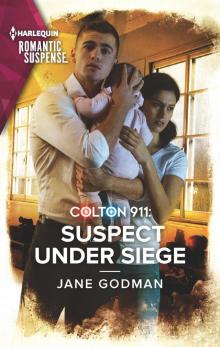 Colton 911--Suspect Under Siege
Colton 911--Suspect Under Siege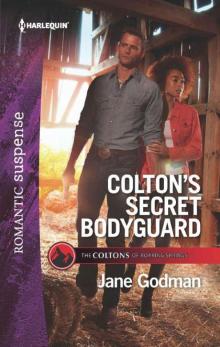 Colton's Secret Bodyguard (The Coltons 0f Roaring Springs Book 4)
Colton's Secret Bodyguard (The Coltons 0f Roaring Springs Book 4)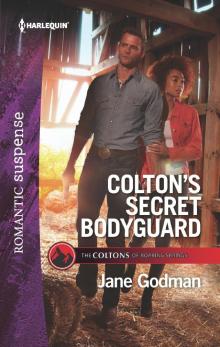 Colton's Secret Bodyguard
Colton's Secret Bodyguard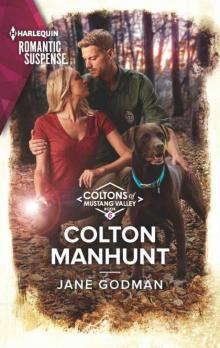 Colton Manhunt (The Coltons 0f Mustang Valley Book 6)
Colton Manhunt (The Coltons 0f Mustang Valley Book 6)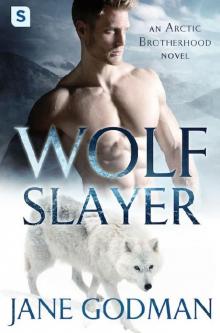 Wolf Slayer
Wolf Slayer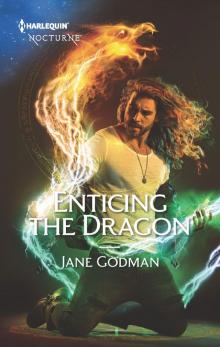 Enticing the Dragon
Enticing the Dragon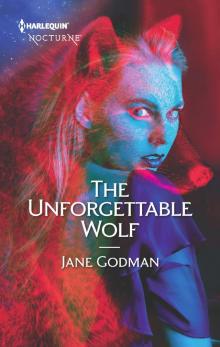 The Unforgettable Wolf
The Unforgettable Wolf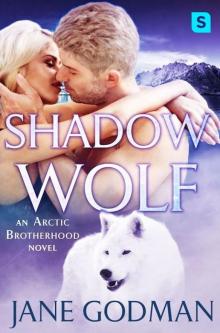 Shadow Wolf: A Shifter Romance (Arctic Brotherhood, Book 2)
Shadow Wolf: A Shifter Romance (Arctic Brotherhood, Book 2) Harlequin E Shivers Box Set Volume 3: Valley of NightmaresHis to PossessThe Girl in BlueThe Ghosts of Cragera Bay
Harlequin E Shivers Box Set Volume 3: Valley of NightmaresHis to PossessThe Girl in BlueThe Ghosts of Cragera Bay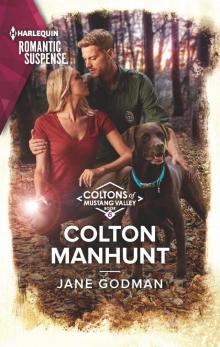 Colton Manhunt
Colton Manhunt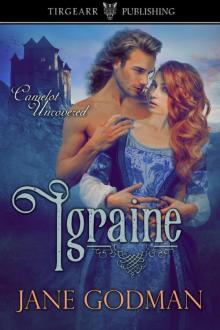 Igraine
Igraine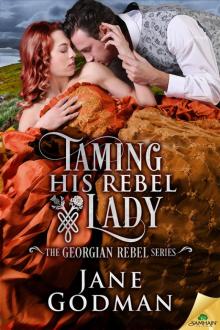 Taming His Rebel Lady
Taming His Rebel Lady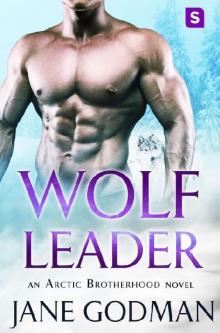 Wolf Leader: A Shifter Romance (Arctic Brotherhood, Book 6)
Wolf Leader: A Shifter Romance (Arctic Brotherhood, Book 6)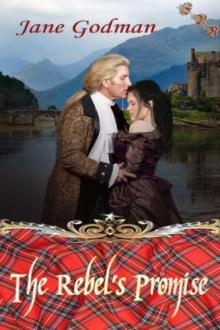 The Rebel's Promise
The Rebel's Promise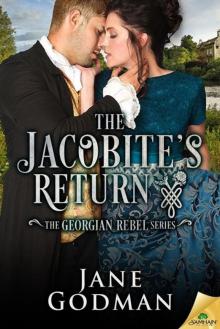 The Jacobite's Return (The Georgian Rebel Series)
The Jacobite's Return (The Georgian Rebel Series)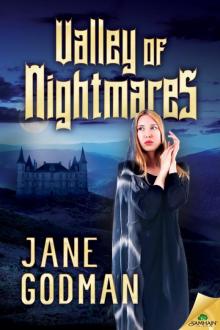 Valley of Nightmares
Valley of Nightmares Colton and the Single Mom
Colton and the Single Mom A Kiss for a Highlander
A Kiss for a Highlander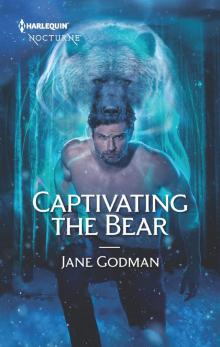 Captivating the Bear
Captivating the Bear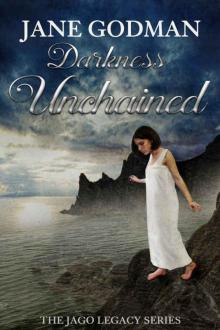 Darkness Unchained
Darkness Unchained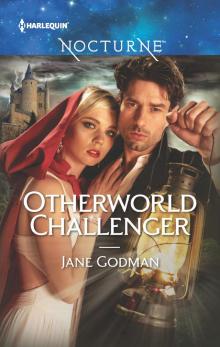 Otherworld Challenger
Otherworld Challenger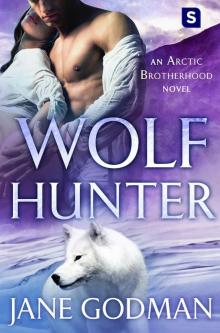 Wolf Hunter
Wolf Hunter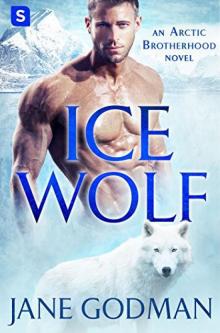 Ice Wolf: A Shifter Romance
Ice Wolf: A Shifter Romance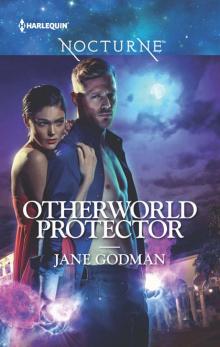 Otherworld Protector
Otherworld Protector Covert Kisses
Covert Kisses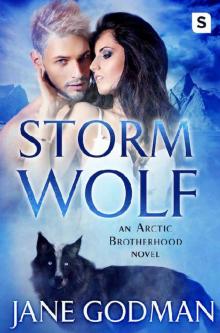 Storm Wolf
Storm Wolf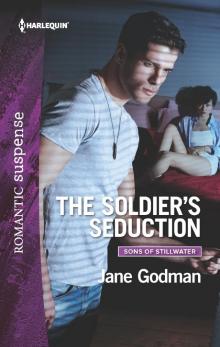 The Soldier's Seduction
The Soldier's Seduction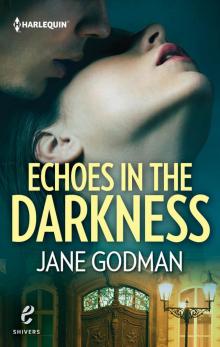 Echoes in the Darkness
Echoes in the Darkness